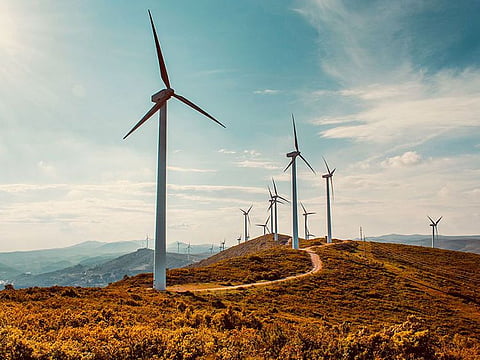Abu Dhabi's clean energy giant Masdar widens footprint in Asia
It's got alliances working in China, and pushing prospects in Central Asia

Dubai: Abu Dhabi’s clean energy powerhouse Masdar is homing in on its next geography – Central Asia. The company recently completed the financial close of the Nur Navoi Solar Project in Uzbekistan… and there could be more.
“For us, Central Asia is a very important market – these are huge countries with huge populations, thus the need for power is too high,” said Yousif Al Ali, Executive Director, Masdar Clean Energy.
The Nur Navoi project has “encouraged” the Uzbek government to have more renewable projects, bids being floated for three new ones.
Planning logistics
Masdar established Nur Navoi FE llc as the local project company to deliver and operate the solar plant. The plant’s commissioning is scheduled for the third quarter of 2021.
“We have a very sophisticated logistical plan - we will have modules coming by train from China to Uzbekistan,” said Ali. “We have already recruited a local team in Uzbekistan to carry on activities and minimize the need to have people from outside the country.”
Wide geography
Masdar has in the recent past channelled its considerable financial clout and knowhow into wind and solar projects in the US (with energy giant EDF) as well as in Europe. Now, it’s building up scale in Asia.
Floating ventures
Last year, the renewable energy giant signed a power purchase agreement with Indonesia’s state electricity company for the first floating solar photovoltaic (PV) plant in the country.
The 145-megawatt plant will be built on a 225-hectare plot of the 6,200 hectare Cirata Reservoir, in the West Java region.
“We expect to achieve financial close in the first quarter [2021],” said Ali. “We'll now see many floating PV projects happening in the market, especially in Southeast Asia, where it is difficult to find land.”
China all the way
Masdar and the China Gezhouba Group International Engineering Company (CGGC INTL) recently signed a MoU to explore potential areas of collaboration on renewable energy projects worldwide.
“The partnership with Chinese companies is increasing - we still don't have our own investment as Masdar in China,” said Ali.
Masdar is getting closer to its objective by entering into more partnerships with Chinese firms, he added.
UAE's solar bloom
In UAE, solar power is now a force to be reckoned with, if recent data is any indication.
The installed renewable capacity of the country stood at 2.3 gigawatts (GW) at the end of 2020 – around 90 per cent of which is from solar PV projects, according to Rystad Energy, a Norway-based consultancy.
Renewable energy seems to be a top priority in the UAE - despite the COVID-19 shock, the government has provided a reasonable amount of investment to continue ongoing projectsGaurav Metkar, senior analyst at Rystad Energy
Solar PV additions are going to pile up, especially from 2022, and drive UAE’s total renewable capacity to an "impressive" 9 GW by the end of 2025, the report added.
Given the country’s current project pipeline, UAE’s renewable capacity is on track for an annual growth of more than 31 per cent towards 2025. Major projects expected to drive this growth include four solar farms - the Al Dhafra, Abu Dhabi PV3, MBR Phase IVa and IVb and MBR Phase V - all of which are in various stages of development.
The remaining 0.9 GW of capacity will come from projects in other emirates, such as Umm Al Quwain, Ras Al Khaimah and Sharjah.
“UAE is home to one of the lowest tariff prices in the world, with prices declining by more than 76 per cent in the past four years,” said Rystad. “The country has gotten into a habit of breaking the world record for the lowest PPA (power purchase agreement) prices and has set records nearly every time recent auction results have been announced.”
The Al Dhafra project, the latest solar PV award in UAE, recently agreed upon a tariff of $13.50 per megawatt-hour (MWh) – among the lowest solar PPA prices in the world.
Sign up for the Daily Briefing
Get the latest news and updates straight to your inbox







